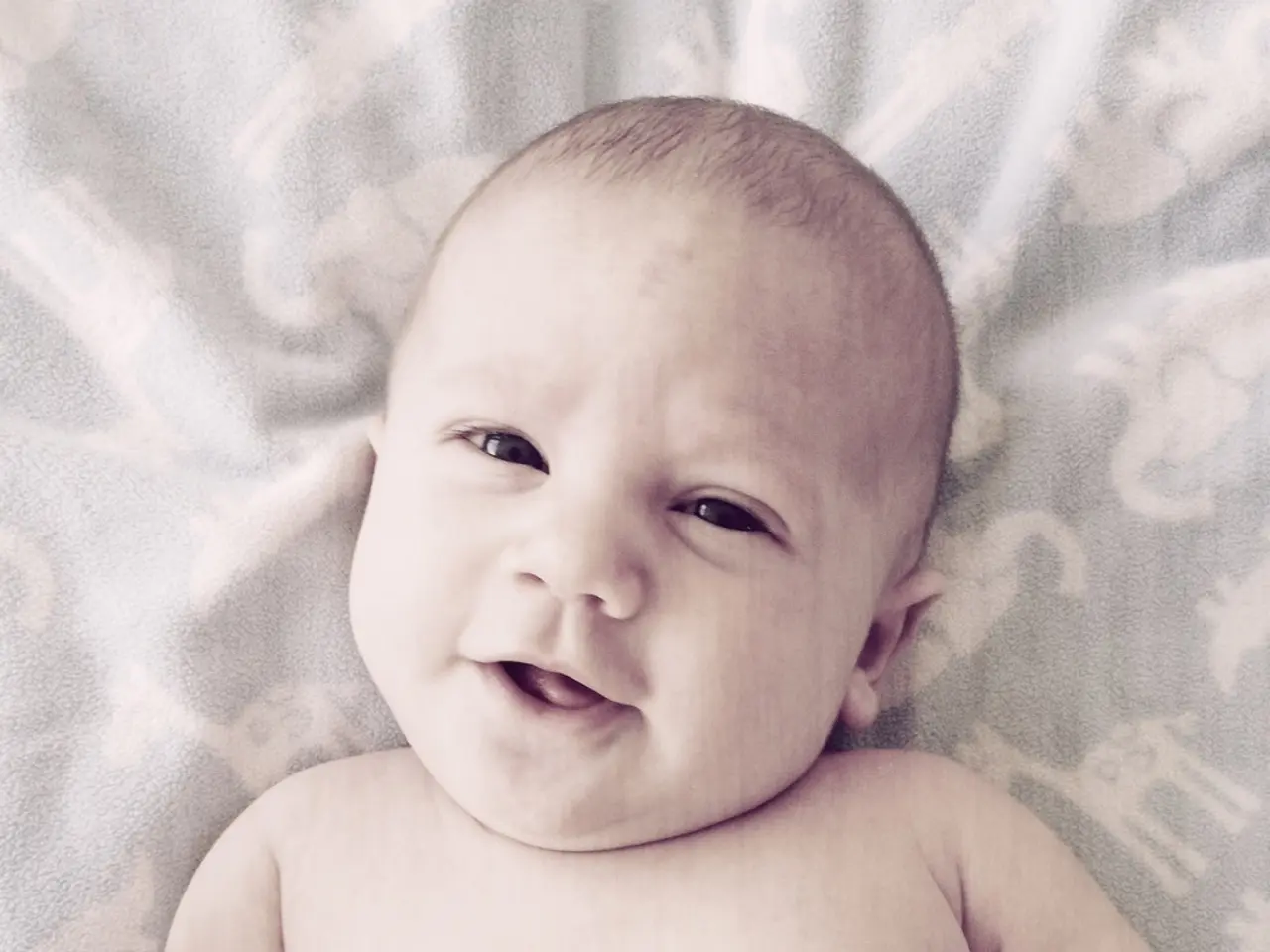Developmental Markers: Signs to Observe in Infants
Supporting Baby Development: A Guide for Parents
In a baby's first year, growth spans across physical, cognitive, social, emotional, and communication domains. Parents can play a crucial role in supporting their baby's development through responsive interaction and appropriate stimulation.
Physical Milestones
Newborns grow rapidly, gaining approximately 1–1.5 inches per month and developing strength in their neck and shoulders. By two months, babies can lift and hold up their heads and start tracking moving objects with their eyes. Crawling, rolling over, and sitting without support are milestones that typically occur between 6-10 months, with many babies taking their first steps by 12 months.
Cognitive Milestones
From the very beginning, infants focus on faces and bright objects, showing an early preference for human faces. By 10 months, they can respond to simple requests and show improved attention spans, with attention lasting up to 5 minutes by one year. Recognition of voices and early problem-solving skills begin in infancy.
Social and Emotional Milestones
Babies show signs of recognition and response to parental voices, seeking comfort, and showing alertness to pleasant sounds from the first month. By 10 months, they can clearly express emotions like happiness and frustration. Secure attachment forms through consistent caregiver responsiveness, fostering trust during the first year.
Communication Milestones
Newborns startle at loud noises and make some sounds beyond crying. Babbling intensifies during the first year, with some babies beginning to say simple words by 12 months. Responding to babbling and naming everyday objects encourages language development.
Supporting Development
To support physical development, provide daily supervised tummy time and offer safe spaces and push toys. For cognitive development, engage with your baby through talking, singing, reading, and making eye contact. For social and emotional development, respond promptly to needs to build trust and emotional security and use expressive facial expressions and bonding activities. For communication, talk to your baby consistently, narrate activities, respond to babbling, and read together regularly.
Monitoring milestones helps identify typical growth patterns. If a baby consistently misses key milestones, consultation with a healthcare provider is advised. Overall, consistent love, interaction, and safe exploration opportunities are fundamental to supporting healthy infant development throughout the first year.
Parents can track milestones using a milestone journal or mobile apps, paying attention to progress rather than comparing to other children. Creating a supportive environment for exploration and learning is essential. Sitting independently, smiling and laughing, and crawling are some of the early milestones to look out for.
As babies approach their first birthday, they have the ability to display empathy and understand the feelings of others. They may start to engage in play with others, explore surroundings with curiosity and enthusiasm, take turns, and share toys. By age 3 or 4, children are proficient in engaging in back-and-forth conversations.
Babies develop fine motor skills, such as grasping objects, between 6-12 months. Around the age of 2, children begin to form simple sentences consisting of two or three words. Babies may exhibit stranger anxiety during this stage, becoming wary and apprehensive around unfamiliar faces.
Walking is typically achieved between 9-15 months of age. Between 12 to 18 months, babies expand their vocabulary and start understanding more words and simple phrases. Rolling over is a milestone that usually occurs between 4-6 months of age. Pulling themselves up to stand usually happens around 9-12 months of age. Between ten to twelve months, babies start recognizing and pointing at familiar objects. Babies may utter their first recognizable words around twelve months of age.
By six months, babies typically start recognizing and responding to their names. As babies approach their first birthday, they begin to understand and follow simple instructions. Babies may start to develop empathy and understand the emotions of others as they grow older.
- Parents can encourage their baby's physical growth by providing supervised tummy time and offering safe spaces for exploration.
- For cognitive development, engaging in activities like talking, singing, reading, and making eye contact with your baby is beneficial.
- Responsive parenting fosters social and emotional development, building trust and emotional security in the baby.
- Supporting communication development involves talking to your baby consistently, narrating activities, responding to babbling, and reading together regularly.
- Tracking milestones helps identify typical growth patterns, allowing parents to seek advice from healthcare providers if concerns arise.
- As babies get older, they develop fine motor skills such as grasping objects, and language skills like forming simple sentences.
- Emotional development includes understanding the feelings of others and engaging in play, which babies start to exhibit as they approach their first birthday.




